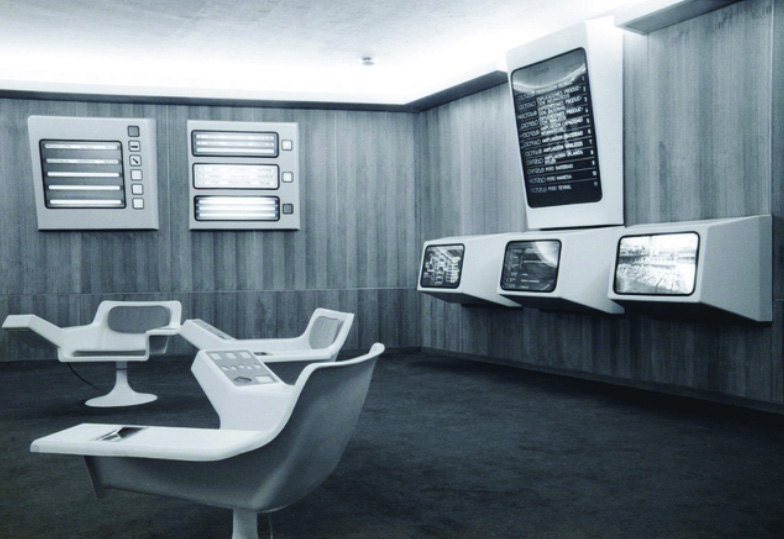Concept: Andrea Bärnreuther, Bauhaus-Archiv / Museum für Gestaltung

Cybersyn Operations Room Datafeed with Chairs, 1972-1973
Born from the periphery – Gui Bonsiepe’s contribution to a symbolic production of design within the cultural-political context of Salvador Allende’s Chile
Contribution by Susanne Neubauer and Marcelo Mari, Universidade de Brasília
The conference paper focuses on the understanding of local design and craft production as proclaimed by the German design theorist Gui Bonsiepe (*1934) as part of his consulting activities in Chile (1971-1973) and as a critique of the “domination technique of capitalism”. Gui Bonsiepe studied at the HfG in Ulm under the Argentinean Tomás Maldonado and then worked there as a lecturer until its closure in 1968. From 1970 to 1973, under the government of Allende, he was project leader in the central economy administration and helped to find alternative solutions for an independent, socialist Chilean path. For Bonsiepe at that time, the “good form” that was to influence social life at the HfG under Bill and as a necessity for a new moral in the succession to the Bauhaus and the Werkbund was the expression of a cultural imperialism. Bonsiepe’s approach, which he described in detail in the publication “Design im Übergang zum Sozialismus” (“Design in transition to socialism”) (1974), not only testifies to the outdated nationalization policy that the Allende government wanted to develop, but also reflects the program of product diversification that corresponds to cultural identity and the needs of the so-called periphery. The article examines Bonsiepe’s draft of a “decolonization” and differentiates his critique of the universal design principles introduced into the social debate by the Bauhaus. In this context, the lecture takes up aspects of the conference and deepens them by investigating how exemplarily problematic the transferability of the democratic-universalist idea into the complex political structure of a Latin American country has proved to be.